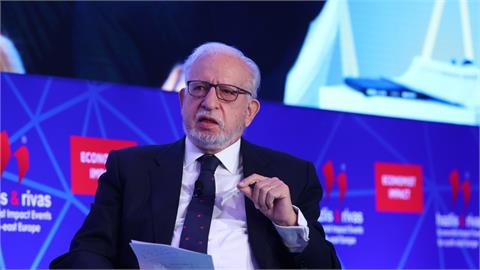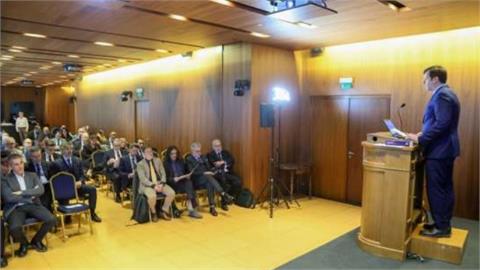The theme of this year’s “ 9th Economist” Sustainability Summit for SE Europe, which was held at the the Divani Apollo Hotel,in Kavouri,near Athens was, “ Seeking a new balance amidst a derailed energy transition”, as the organisers sought to portray the serious challenges now facing decarbonisation policies in Europe and elsewhere. The Chairman of the Institute, Costis Stambolis was invited to participate as one of the speakers in the panel that dealt with energy transition issues in Greece and was aptly titled “ Decarbonisation:Can Greece lead the way.” Other speakers in this session, which was expertly moderated by Alasdair Ross,countries editor of the World Ahead 2025,published by The Economist, included Nikos Tsafos, deputy minister of environment and energy of Greece, Yiannis Maniatis,a euro MP and former minister of energy,Helena Athoussaki,chief sustainability officer of the Motoroil Group and Thalia Vakouma, president and CEO of Faria Renewables.
Although the title of the session was “ Decarbonisation: Can Greece lead the way?” the panelists broached on a number of broader issues including energy security and the government’s current exploration programme in offshore areas south of Crete and Western Greece where some of the world’s leading companies are participating, including ExxonMobil and Cnevron. The continuous expansion of renewables in the country’s electricity mix was discussed at length, including the problems which are lately surfacing because of overcapacity. With Greece already covering more than 50% of its electricity needs from renewables there are frequent phenomena of power curtailments imposed by the Transmission Operator in order to avert grid imbalances and eventual blackouts. These curtailments, which sometimes reach 25% of RES daily output, are causing concern among investors who are now facing diminishing returns on their outlays in renewable plants, mostly solar PV and wind.
As Costis Stambolis observed during the panel discussion we should be careful to avoid over dependence on renewables because of the impact they have on the rising cost of electricity since the higher RES penetration into the grid necessitates an equal amount of base load electricity which is normally provided by expensive fossils fuels, primarily gas. He also commented on the still restricted role of renewables in covering the national energy mix, since their contribution is only 22%, according to 2024 data. Furthermore the Chairman of IENE noted, “ As electricity still forms a small part of the country’s energy mix and renewables output is exclusively in electricity, their participation is constrained by nature. This is an important point to remember when charting energy policies which are largely driven by decarbonisation criteria.”




